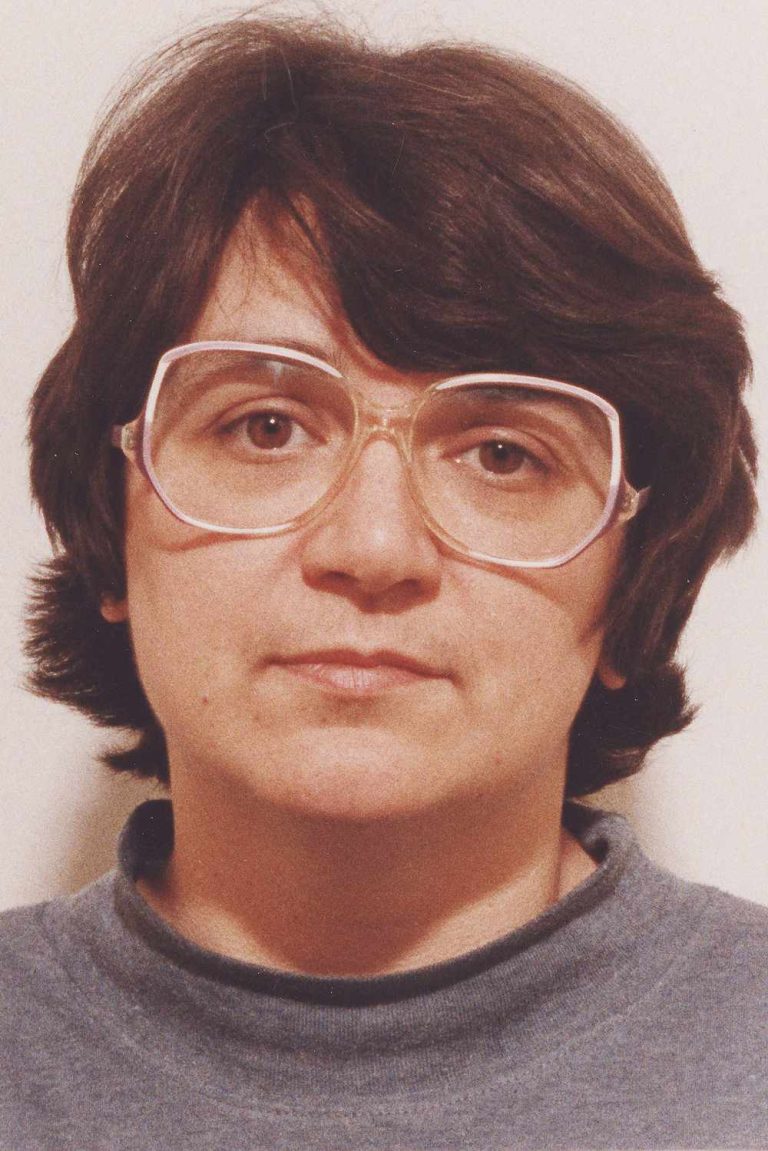Rose West: Inside the Mind of Britain's Most Notorious Female Serial Killer
Who Is Rose West?
Rose West, born Rosemary Pauline Letts on November 29, 1953, is known as one of the most notorious serial killers in British history. Alongside her husband, Fred West, she terrorized the United Kingdom through a reign of horrific crimes including rape, murder, and the brutal dismemberment of at least 10 women and girls. Their crimes spanned from 1971 to 1987, primarily centered in Gloucester, England.
When Rose met Fred West in 1969, she was just a teenager, aged 15, while Fred was already an adult with a documented criminal record and a growing history of violence against women. Although initially hesitant, Rose quickly became entangled in Fred’s dark world. Her own violent tendencies became apparent after she murdered Fred’s eldest daughter, Charmaine, marking the start of a series of heinous acts that the couple committed together.

The Wests’ relationship was not only that of husband and wife but also partners in crime. Their home, most infamously the property at 25 Cromwell Street, became known as the "House of Horrors," a place where unimaginable abuses were carried out over many years. Their twisted partnership allowed them to evade capture for over two decades.
Authorities finally apprehended the couple in 1994 during an investigation sparked by the disappearance of their daughter Heather West. The ensuing trial was one of the most shocking in British criminal history. Rose was found guilty on all 10 counts of murder in November 1995. To this day, she remains incarcerated, serving a life sentence without the possibility of parole.
The House of Horrors Revisited: A New Spotlight
On May 14, 2025, Netflix premiered Fred and Rose West: A British Horror Story, reigniting public interest in one of the most unsettling cases of serial murder in UK history. The docuseries offered haunting new insights into the sadistic partnership between Fred and Rosemary West, whose Gloucester home at 25 Cromwell Street became a real-life chamber of death. With exclusive interviews from their surviving children and never-before-seen footage, the series explores how the couple abducted, raped, and murdered at least 12 women and girls. For many, the question still lingers: How did Rose West, a seemingly ordinary woman, transform into a remorseless killer?
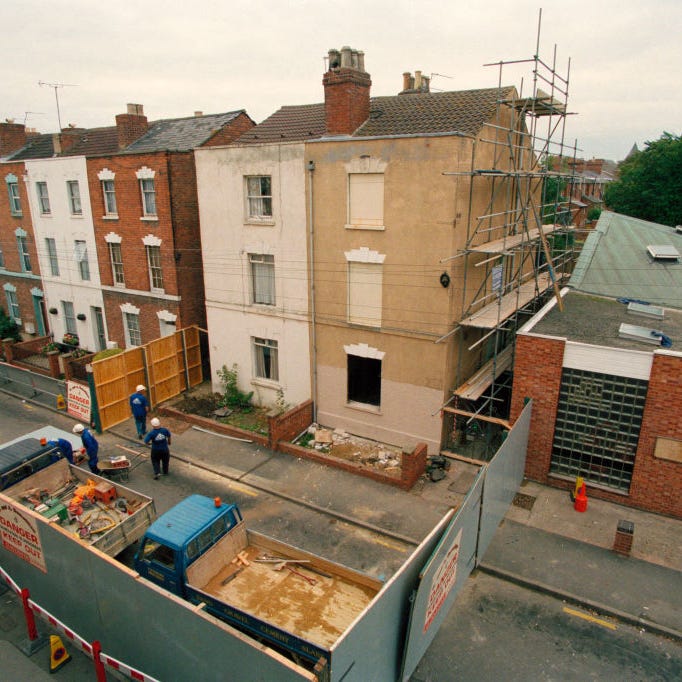
A Fractured Beginning: Early Life of Rosemary Letts
Born on November 29, 1953, in the Devon town of Barnstaple, Rosemary Pauline Letts grew up in a volatile and dysfunctional household. Her father, Bill Letts, suffered from paranoid schizophrenia and was violently abusive. Her mother, Daisy, underwent electroconvulsive therapy while pregnant with Rose—treatments that may have affected her developing brain. Rose struggled in school, exhibited erratic behavior, and developed a disturbing affinity for older men.
By her early teens, Rose was sexually precocious and emotionally unstable. When her mother fled the family home, Rose chose to stay behind with her abusive father, foreshadowing the self-destructive relationships that would define her life.
The Meeting That Sealed a Fate
In 1969, 15-year-old Rose met 28-year-old Fred West at a bus stop in Cheltenham. He was scruffy, older, and already a convicted child molester—but Rose was intrigued. Fred wooed her with gifts and flattery, ultimately drawing her into his chaotic world. Within weeks, Rose left her job to become nanny to Fred’s two young daughters, Charmaine and Anne Marie.
Her parents, alarmed, tried to intervene. Her father contacted social services and even threatened Fred—but nothing stopped Rose from moving in with him. By 16, she was pregnant with Fred’s child and managing the household while he served jail time for theft. During his absence, Rose committed her first known murder: the brutal killing of 8-year-old Charmaine.
The House on Cromwell Street
In 1972, Rose and Fred married and moved into what would become their infamous home at 25 Cromwell Street. Over the next decade, Rose bore seven more children, though not all were fathered by Fred. Their seemingly normal family life concealed unimaginable horrors.
The Wests converted their basement into a torture chamber. Friends, lodgers, and even their own children became victims. Rose often worked as a sex worker to lure in young women. She wasn’t just complicit—she was an active participant, often taking the lead in sadistic acts. Victims were beaten, sexually abused, strangled, and dismembered.
Among those tortured were their daughters, including Anne Marie and Heather. When Heather began speaking out, she was killed and buried under the garden patio—a spot that would later earn grim notoriety. Their other children were also subjected to abuse, both physical and psychological. Stephen West, one of their sons, was even made to help dig Heather's grave, an act that haunted him for years.
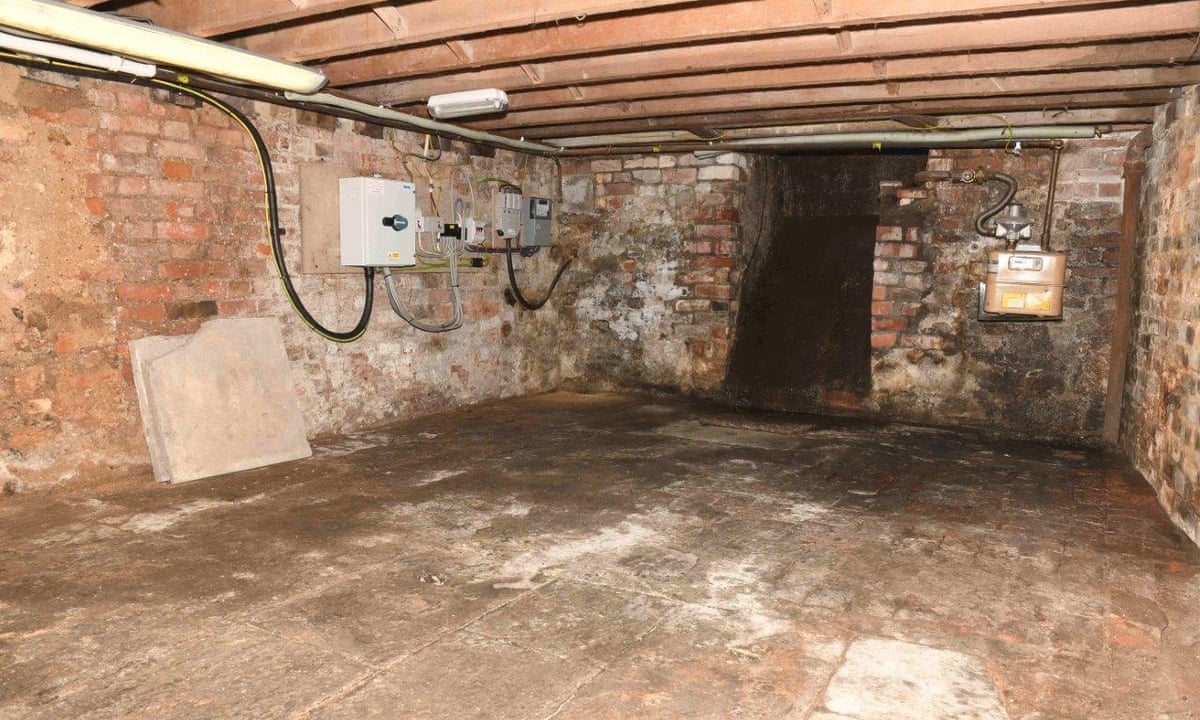
Chronicle of Victims: Names That Must Be Remembered
Though the Wests’ crimes spanned decades, their victims only came into focus in the 1990s. Authorities later confirmed the couple’s involvement in the murders of:
- Charmaine West (Fred’s daughter)
- Catherine “Rena” West (Fred’s first wife)
- Lynda Gough, 19
- Carol Ann Cooper, 15
- Lucy Partington, 21
- Therese Siegenthaler, 21
- Shirley Hubbard, 15
- Juanita Mott, 18
- Shirley Robinson, 18 (pregnant)
- Alison Chambers, 16
- Heather West, 16 (Fred and Rose’s daughter)
- Ann McFall, 18 (Fred’s former lover)
Many were buried in the cellar or beneath the garden. Each bore signs of sadistic torture—severed fingers and kneecaps, a signature of Fred’s obsession with dismemberment. In most cases, the victims were women who had either stayed at Cromwell Street as lodgers or were picked up by Rose under the guise of kindness and shelter. Some were never officially reported missing due to their transient lifestyles, allowing the Wests to continue their rampage unchecked.
Assaults, Escapes, and Missed Chances
In late 1972, 17-year-old Caroline Owens answered a job ad to work as a nanny. Instead, she was imprisoned, stripped, and raped by both Fred and Rose. She escaped and reported the crime. But shockingly, the courts dismissed the case as consensual due to lack of testimony and awarded the Wests a mere £50 fine. It was a missed opportunity to stop them.
The couple’s children lived in a state of terror. Anne Marie, raped repeatedly from a young age, eventually fled. Heather, more defiant, was punished with death. Stephen, one of their sons, was forced to dig Heather’s grave. The level of manipulation and coercion the Wests inflicted on their children formed a closed world where even speaking out could mean death.

Unraveling the Horror: The Investigation
In 1992, following another rape allegation from daughter Louise, police searched 25 Cromwell Street. They found disturbing pornography but little physical evidence. The case seemed to stall until anonymous tips and troubling comments from the children about “Heather under the patio” spurred renewed interest.
Detective Hazel Savage spearheaded the investigation. In February 1994, police secured a warrant to excavate the backyard. Fred confessed to killing Heather and others, initially claiming Rose had no knowledge. He was arrested along with Rose. As human remains were uncovered, Fred’s confessions piled up—first to three murders, then to 12.
More shocking than the confession was how long the murders had gone undetected. Despite earlier brushes with the law, multiple reports from concerned parties, and even visible signs of abuse on their children, the Wests managed to evade true scrutiny for decades. Investigators found that the house had been methodically designed to muffle screams and contain the stench of death.
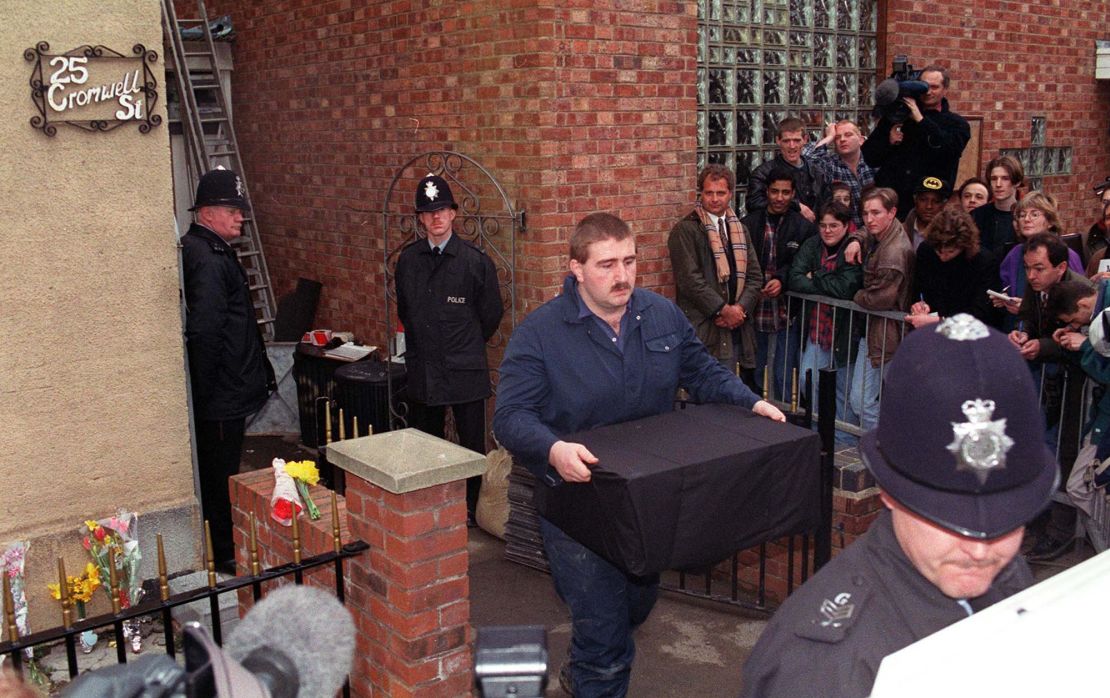
Fred’s Suicide and Rose Alone on Trial
While in custody, Fred West hanged himself in January 1995. Rose West was left to face the legal consequences alone.
Despite her claims of innocence and attempts to paint herself as a victim of Fred’s manipulation, the evidence told a different story. Witnesses recounted her active participation in sexual assaults and murder. Children testified to years of systemic abuse. Her trial began in October 1995, and after seven weeks, she was convicted on all 10 counts of murder. She was sentenced to life imprisonment without parole.
Jurors were visibly shaken during testimony. The details presented were grotesque and traumatizing. Despite the defense team’s efforts to shift blame to Fred, Rose’s own actions, particularly her abuse of her daughters and involvement in the torture of lodgers, sealed her fate.

Life Behind Bars: Infamy Continues
Rose West remains incarcerated at HMP New Hall in West Yorkshire. She has never admitted guilt, maintaining her innocence despite overwhelming evidence. In 2001, she dropped all appeals. Yet media interest in her life persists.
In 2003, tabloids reported she was engaged to Dave Glover, former bassist of the band Slade. Glover denied the engagement but admitted exchanging letters, a revelation that briefly reignited public fascination—and outrage.
Fellow inmates have reportedly alternated between fear and contempt for West. She has been the target of attacks and isolation, and prison authorities have at times placed her in protective custody. Despite these challenges, reports indicate she has maintained a relatively stable existence behind bars, reportedly engaging in activities like cooking and crafts.
Legacy of Horror: Pop Culture and Public Memory
The Wests’ crimes have inspired numerous documentaries, books, and dramatizations. The Channel 5 series Fred and Rose: The West Murders (2001), Crimes That Shook the World (2006), and Fred and Rose (2014) have all examined their gruesome saga. The most recent Netflix docuseries, Fred and Rose West: A British Horror Story, explores not just the crimes, but also the cultural blind spots that allowed them to continue for so long.
Newspaper archives show how media initially underplayed the West case, perhaps due to class and locality biases. Some experts argue that if the Wests had been more affluent, or lived in a major city, scrutiny might have come sooner. The case has since become a benchmark for child protection policies and investigative protocol in the UK.
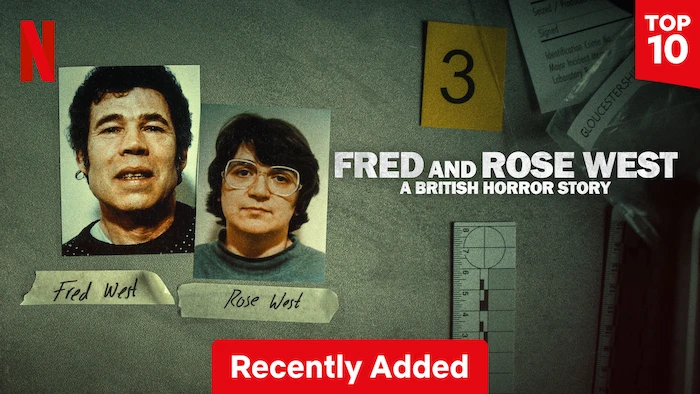
New Revelations: Where the Story Leads Now
Recent efforts by journalists and researchers have uncovered new claims from individuals who allege they were assaulted by the Wests and survived. While these reports have not led to new charges, they add to the chilling picture of a couple whose appetite for cruelty seemed insatiable.
One former lodger came forward anonymously in 2024, revealing they narrowly escaped being targeted by the Wests after declining an invitation to the basement. Their testimony, included in the Netflix series, adds weight to the idea that there may be more victims still unaccounted for.
There have also been academic studies exploring the Wests’ psychology. Rose, in particular, has been the subject of debates around female serial killers and the intersection of gender and sadism. Some criminologists have compared her to Myra Hindley, suggesting her case reshaped public perceptions of what women are capable of.
The House That Shouldn’t Exist
In 1996, the notorious house at 25 Cromwell Street was demolished. Today, a quiet footpath marks the spot—a symbolic effort to erase the horror. But the legacy of Rose West lives on, not just in infamy, but in the collective memory of a nation forever haunted by the crimes that unfolded behind that door.

Closing Thoughts: A Warning From the Past
The West case remains one of Britain’s darkest chapters. It revealed how domestic spaces can become theaters of unimaginable horror. It exposed systemic failures—missed opportunities by social services, police, and courts. And most of all, it shattered the illusion that monsters always look like monsters.
Rose West, now in her seventies, may never leave prison. But the echoes of her crimes continue to reverberate through the stories of her victims—and through the questions we still ask about how such evil went unnoticed for so long.

